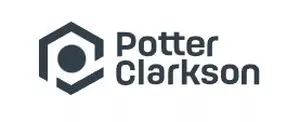- within Government and Public Sector topic(s)
The connection between IP and competition law may not be immediately obvious. However, it is important to bear in mind that competition law affects all commercial dealings, including intellectual property transactions. By their nature, intellectual property rights and, especially, patents, are anti-competitive. They provide monopoly rights, which inevitably restrict entry into the market of competing products.
European case law highlights the importance of the balance to be struck between maintaining free competition and the requirement to safeguard intellectual property rights.
The case we discuss below shows how important it is to keep in mind the wide reach of competition law and how easy it is to get a hefty fine for, in the eyes of the relevant authorities, abusing the system.
BACKGROUND OF THE CASE
Teva Pharmaceutical Industries Ltd ("Teva") is a multinational pharmaceutical company. Although Teva's primary focus is generic drugs, it also produces branded medicines, including Copaxone; a treatment of multiple sclerosis. Copaxone contains the active pharmaceutical ingredient glatiramer acetate, over which Teva held a patent until 2015.
For the past 4-9 years (depending on the jurisdiction), Teva has allegedly filed and then withdrawn divisional applications (applications which are "divided out" from the "parent" application) in a manner which created commercial uncertainty and artificially prolonged the exclusivity of Copaxone by hindering the market entry of competing, cheaper glatiramer acetate medicines.
EUROPEAN COMMISSION'S INVESTIGATION
In March 2021, the European Commission opened proceedings against Teva and its European subsidiary (Teva Pharmaceuticals Europe BV).
Having investigated the matter, the European Commission found that Teva abused its dominant position in seven member states of the European Union. The Commission fined Teva an eye-watering €462.6 million. This is the first time the Commission has pursued a company for its divisional patent filing and enforcement strategies.
The Commission found Teva guilty for:
- Artificially extending the patent protection of Copaxone by "strategically filing and withdrawing divisional patents"; and
- Systematically spreading misleading information about a competing product (creating a false perception of health risks) to hinder its market entry and uptake.
COMPETITION LAW CONSIDERATIONS
Article 102 of the Treaty on the Functioning of the European Union (TFEU) states that "any abuse by one or more undertakings of a dominant position within the internal market or in a substantial part of it shall be prohibited as incompatible with the internal market in so far as it may affect trade between Member States." Therefore, to fall under Article 102, two elements must be satisfied: (i) there must be a company or business that holds a dominant position on the relevant market, and (ii) it must be taking advantage of its dominance.
LESSONS TO BE LEARNT
Pharma companies are used to playing the cat and mouse game in their attempts to prevent generic manufacturers from knocking down the prices of their branded drugs. One way that pharma companies resist generic manufacturers is by filing divisional applications of their parent patent.
Although filing divisionals seems like a tried and tested solution, competition law may have a different opinion about that. In this case, the Commission found that Teva's strategy in effect "artificially prolonged legal uncertainty to the benefit of the patent holder and could effectively block or delay entry of generic or generic-like medicines".
Also, it is important to keep in mind that any market practices you adopt must be fair. In an attempt to keep Copaxone's price up, Teva was also found guilty of leading a disparagement campaign targeted at healthcare professionals, which created doubts about the safety and efficacy of a competing generic medicine and its therapeutic equivalence to Copaxone.
Teva's case shows how important it is to ensure that, whatever you do, you are in compliance with the law. If in doubt, speak with us.
Read more about Teva's case here.
The content of this article is intended to provide a general guide to the subject matter. Specialist advice should be sought about your specific circumstances.



